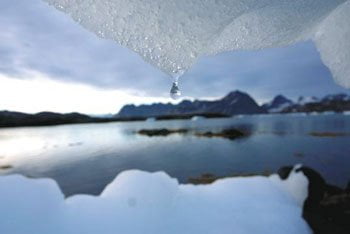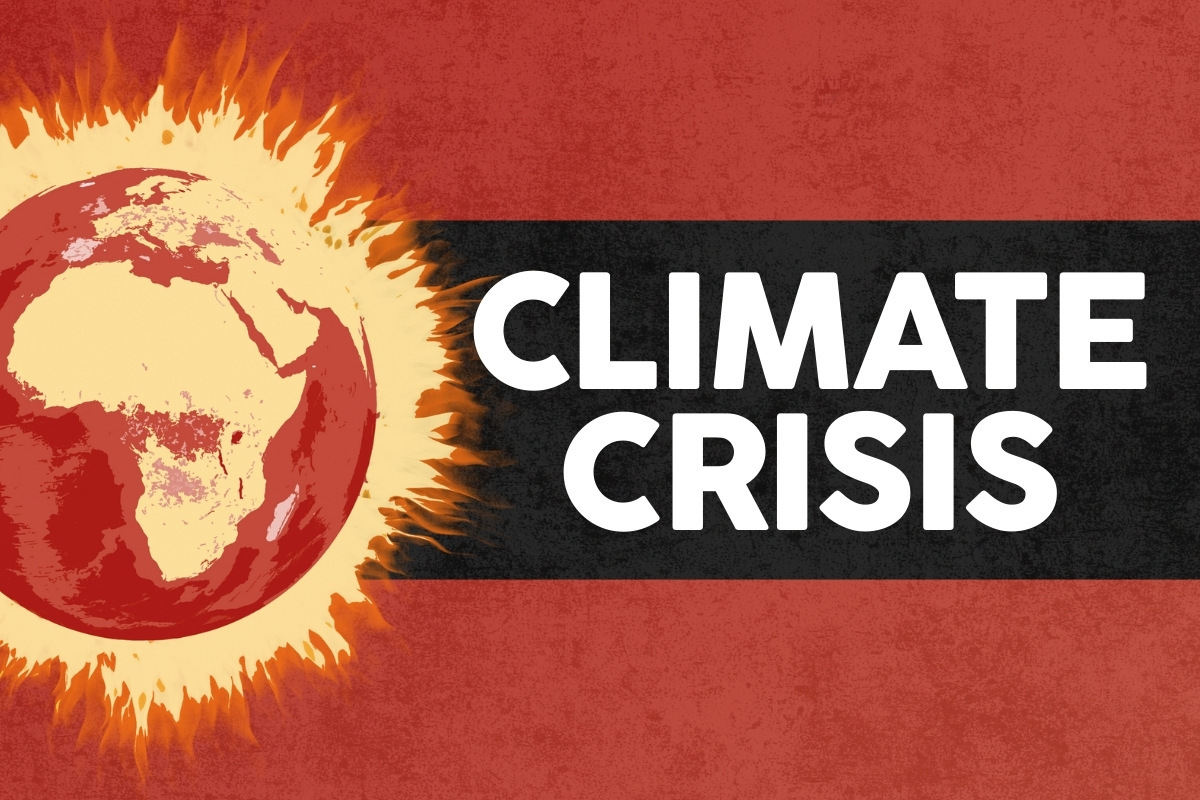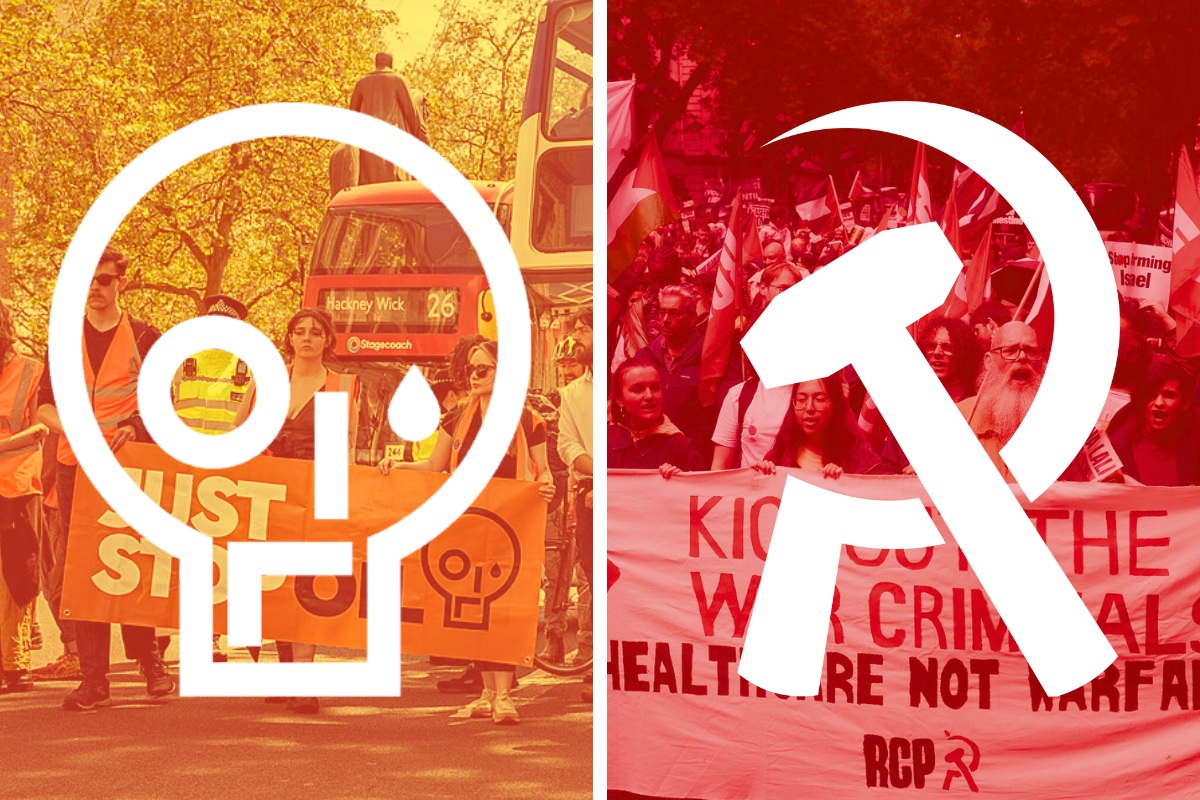 It's official. Climate change is almost certainly the present greatest threat to human life on earth. Also human economic activity is a major factor in contributing to climate change. In particular, our emissions of gases such as carbon act like a greenhouse on the earth's atmosphere, trapping heat so that the planet as a whole will get warmer and warmer.
It's official. Climate change is almost certainly the present greatest threat to human life on earth. Also human economic activity is a major factor in contributing to climate change. In particular, our emissions of gases such as carbon act like a greenhouse on the earth's atmosphere, trapping heat so that the planet as a whole will get warmer and warmer.
The Report, commissioned by Gordon Brown, has been described by the economist Joseph Stiglitz as ‘the most comprehensive study to date of the economic costs and risks of global warming.' Nicholas Stern was the chief economist of the World Bank. His views can be taken as the economic and scientific orthodoxy of today.
What is going on? The Stern Report on climate change gives it to us with both barrels.
- 24% of human-related carbon emissions are from burning fossil fuels such as oil and coal for power. These fuels have formed under the earth's surface for around three hundred million years as a result of geological action. ‘We' are going to blow them all in a big party lasting a couple of hundred years, after which all intelligent life on earth will become impossible. Aren't ‘we' clever!
- 14% goes on transport, in particular air transport. For instance a flight from here to Australia emits 5.6 tonnes of carbon into the upper atmosphere per passenger.
- 14% goes on industrial production.
- 8% is used to heat and supply buildings.
- Agriculture takes 14%.
- ‘Changes in land use' causes 18% of all carbon emissions.
This is a double whammy. Most of these changes consist of burning down forest, like those in the Amazon basin. But these forests are recognised by scientists as ‘sinks' that soak up carbon emissions. Not only will we lose the protection against climate change provided by the existence of the forests, but the very process of burning them down also increases emissions.
Carbon was 280 parts per million in the atmosphere before the industrial revolution. Now it's 430 parts, and, if present trends continue, it will be 550 ppm by 2050. This threatens an overall temperature rise of at least 2 degrees Celsius by the end of the century, with estimates on the high side pointing to a 5 degrees increase.
Are we all going mad? Human life on earth is in danger. If the most alarming predictions are correct, 20-50% of species could be extinct by the end of this century. No doubt cockroaches will survive. But this article is not written for the benefit of cockroaches.
Who's to blame? ‘We' haven't decided to destroy the conditions that make our life on earth possible. Nobody asked us. And that's the point. Under capitalism nobody ever asks us. Things just happen. And they happen because of market forces. Stern comments that climate change is, "the greatest market failure the world has ever seen." So the culprit is this wonderful market from which we are constantly told all blessings flow. The culprit is capitalism.
That's not quite how Stern would see it, of course. He's a conventional economist. What he means by market failure is that the market (the ‘invisible hand' that organises what and how much of everything we produce, as Adam Smith called it) doesn't take account of all the costs and benefits, of all the wider consequences, as the market organises economic activity. What individuals see as good for them when they enter into market relations is limited. One example of market failure is an externality, a cost or benefit unaccounted for as trader higgles with trader. "Greenhouse gases are, in economic terms, an externality," the Report comments. "Those who produce greenhouse gas emissions are bringing about climate change, thereby imposing costs on the world and on future generations, but they do not face the full consequences of their actions themselves." So a forge produces pig iron and smoke. The firm gets money for the pig iron. It doesn't have to pay for the smoke. Other people pay through pollution and respiratory diseases – and global warming. Who cares? That's how it is under capitalism.
Stern is actually a bit schizophrenic about the market. He can see that it's the problem, but he also thinks it might be the solution. If market calculation is missing something out, then let's factor it back in. Lets put a price on carbon emissions, instead of factories and firms regarding them as free! The market can be corrected by making ‘bads' cost the polluters money. If they have to pay, they won't do it and we can all breathe a sigh of relief.
Stern appeals to self-interest. If ‘we' carry on the way we are going, we will have a severe depression – losing between 5 and 20% of global income. If ‘we' take action now, we'll only lose 1% of our income. Easy peasy. It's common sense – a stitch in time saves nine!
Stern thinks the world is ruled by reason. On the contrary, it is ruled by capitalism. Of course capitalists don't want to end human life on earth – where's the profit in that? But the system generates its own dynamics that operates despite the wills of individual capitalists and serves to determine their wills. In extremis capitalism will have to take decisive measures to ensure its own survival. But will it be too late by then?
Apart from carbon trading (which we'll deal with in detail a little later) Stern proposes international agreements. Good idea – but we already have the pathetic Kyoto agreement already. And the USA (which is responsible for a quarter of all carbon emissions, though housing less than one twentieth of the world's population) won't sign up. The reason? The US President has made his fortune from fossil fuels and, as President, he represents the interests of fossil fuel capitalists, not that of humanity. And Bush is typical of the politicians who rise to the top under capitalism – capitalists with an axe to grind.
Stern would also like more investment in new technology. If that were profitable, business would already be there ahead of him. It's not, and won't be till there's a clear and immediate environmental catastrophe staring us in the face. Capitalism is essentially reactive. What is needed here is forward planning.
As a conventional economist, Stern has two fundamental views that Marxists disagree with. The first is that there is a direct relationship between ‘man' and nature. We believe that human interaction with nature is mediated by the form of society, what Marx called the mode of production, that we live in. Capitalism wastes and guzzles resources because that is the easy way to make money, not because that is human nature. Socialism will rely on planning the economy, which means planning our use of natural resources. This will be all the more important after we inherit the environmental mess left by capitalism. Stern, on the other hand, wants government to override market shortsightedness, without abolishing the capitalist system
Secondly neo-classical economists believe that there is a ‘trade-off' between growth and conservation. We don't think growth is naturally dirty, though we agree that unplanned growth will waste resources and generate pollution. Marxists believe the world economy can be planned to grow fast enough to give everybody a path out of poverty without destroying the planet.
A central conclusion from Stern's analysis is the need to put a price on carbon, to create a market (actually a pseudo-market) where one does not exist at present. Economists call this ‘internalising the externality'.
This is how it is supposed to work.
- An international agreement sets stringent limits to carbon emissions for each country.
Hurdle one: how do we get the States onside? And it's not only the USA that's likely to be a problem. Other countries signed up to Kyoto because it was only intended to reduce the rate at which emissions increase. Kyoto did not propose to cut emissions. Nobody thinks the Kyoto targets, which are being cheated on and backslided upon by most nations already, are adequate to deal with climate change.
- A country that is likely to exceed its target approaches another, which is below the limit, and proposes a quota swap.
Of course it is poor countries that are likely to reduce emissions so that they're in the black and have credits to trade with advanced countries. The madder sections of bourgeois economists see this as analogous to the way toys and shoes are produced in low wage economies. The market is producing an ‘efficient' use of resources!
Actually it just shows that some countries are rich and others are poor, and the poor countries have to skivvy for the rich.
The market is then said to produce an ‘optimal' level of pollution. For most of us there is no ‘optimal' level of mass extinctions. Emissions have to be drastically cut down – one way or the other.
- If this is done, the world will not exceed its target for carbon emissions and all will be well.
To be fair to Stern, he is taking the problem seriously. He perceives that capitalism, left to itself, causes the problem. And he is trying to establish a regime where capitalists do not act so destructively. This is a step forward from the policies of New Labour – which is so ‘business-friendly' that it rolls on the ground and waits for its tummy to be tickled whenever a rich man passes by. On issues as diverse as the laxest building regulations in Europe as regards enforcing heat insulation in new houses, to the mad dash to cover half the country with concrete for airport runways, New Labour has shown you can be business-friendly or environmentally responsible – but not both.
There are basic problems with the market in carbon emissions, the market-friendly solution to a problem created by capitalism. Does carbon trading work?
Since forests are supposed to be carbon ‘sinks' that soak up the pollutants, why not just pay poor countries to plant trees? One obvious answer is that they're not actually full sized trees for the first hundred years or so of their existence, and so they won't actually soak up much carbon. Secondly, since climate change is ongoing, we might be planting the wrong sort of trees, as most of the world is getting warmer. In that case (since the trees can't just jump on a plane and go where the climate is right for them) they might die – causing methane emissions worse than the problem they were intended to deal with. Oliver Rackham, botanist at Cambridge University, comments, "Telling people to plant trees is like telling them to drink more water to keep down rising sea levels."
All the other Clean Development Mechanism (CDM) programmes swap emissions now for hope of improvement in the future. For instance building wind farms takes time. Not only that. If we subsidise energy so that it gets cheaper, people in the poor country are likely to use more of it, including the ‘dirty' stuff. After all, people usually buy more of something when it's cheaper. So the overall effect of the CDM programme is not at all clear.
The wider problem to carbon offset (as it is called) is the problem of ‘additionality'. This ugly expression asks the question – would they have done it any way? Some countries are boasting because they have subsidised Eritrean peasants to use more fuel-efficient stoves in their cooking. But won't Eritrean peasants want to save money anyway, without having to be paid to do so?
Then there is ‘leakage' – for instance all those people getting in their cars and going off to see the growing forests, so creating more emissions that the forests were supposed to soak up.
Readers may be concerned that, without really thinking about it, they have become part of the problem. The sort of papers I read run ‘ethical consumer' columns that keep asking, ‘Is it OK to do X?' – for instance going on foreign holidays. Marxists are not in the business of advising readers on lifestyle issues. For the record, this writer does go down to the bottle bank every week, without harbouring the illusion that this is single-handedly saving the planet.
But ethical consumerism has become (guess what?) big business. You can hire consultants, these scallywags of our age, to advise you as to your ‘carbon footprint'. So you jet off to the Caribbean and pay penance for the carbon emissions in a (remarkably small) voluntary surcharge to plant trees and so make your trip ‘carbon neutral'. Hurray – the planet is saved!
It's the same principle of putting a price on ‘bads'. But whereas the carbon trading projects within the nations of the European Union and elsewhere are regulated, and the authorities have some awareness of the likely scams, private carbon trading is the wild west of capitalism. Where you get markets, there you get swindles. Two private companies rig this pseudo-market. It's quite a lucrative business. People who are paying out in good faith could be being taken for a ride. One outrageous example is a subsidy to capitalists to encourage them not to cut down trees. They don't need an incentive – they should just be stopped! And, like the national CDM programmes, it's all based on fuzzy predictions as to the environmental consequences of what is a complex scientific process.
George Monbiot wittily compares the purchase of ‘forgiveness' for carbon emissions as akin to the sale of indulgences by the medieval Roman Catholic Church. Any sin, however heinous, could be forgiven if you gave the church's representatives enough money! Of course murdered men stayed murdered even after money had changed hands. And the earth is still going to hell on a handcart, even if countries and people can feel all warm about their carbon offset. Emissions need to be cut – drastically, and soon.
But what about India and China, the sceptics ask? They're industrialising fast. Aren't they entitled to the same standard of living as us in the advanced countries? Of course. But they won't all be able to use cars for trips all the time, and neither can we. If they start to emit as much toxin as we already do, we're all done for. There is a practical alternative – help from advanced countries to provide cheap public transport, so people don't have to get the car out every time.
There are technically viable solutions to all the causes of excess emissions. The problem is that capitalism is unplanned, and these solutions won't just happen. They have to be consciously made to happen. That means ‘we' have to be in charge for the first time. That is the case for world socialist planning in a nutshell.





